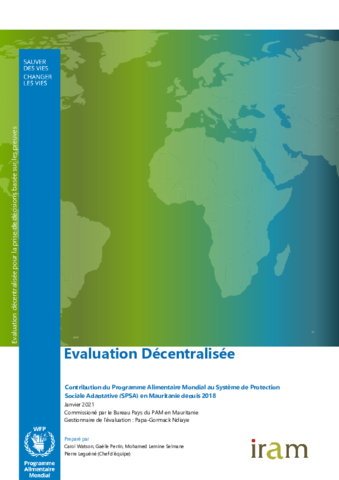
The evaluation was designed according to the following international criteria: relevance, effectiveness, efficiency, impact, sustainability and coherence
Overarching evaluation questions included:
- To what extent is WFP's support to the SPSA relevant to the needs of the most vulnerable populations, and appropriate for achieving its intended outcomes?
- To what extent have WFP actions contributed to the strengthening of institutional capacities, tools and procedures necessary to the SPSA functioning?
- To what extent has the implementation of WFP interventions contributed to the achievement of significant outcomes?
- To what extent did WFP contribute to addressing the basic needs of the most vulnerable households?
- To what extent will the achievements of WFP support be sustainable in the long term?
- To what extent did the support to the SPSA taking into account humanitarian considerations, principles and standards and contributing to the coherence of the different stakeholders?
Overaching findings include the following:
The evaluation confirmed the relevance of WFP choice of a cooperation model focused around adaptative social protection, in line with the needs of the population and the shortcomings of pre-existing shock response mechanisms. Significant progress was made on several key elements of the shock response component such as preparedness and response planning, harmonization of assistance modalities and targeting. The early warning and response funding pillars have also made progress, but significant challenges remain. WFP contributes to adaptive social protection beyond its shock-response component through nutrition, resilience and school feeding activities. However, this broader approach still lacks articulation at the country level and requires the establishment of diversified partnerships with institutions involved in the different activities under consideration. The forthcoming update of the Strategy of the National Social Protection is a good opportunity to promote the development of the integrated ASP system framework and, as a prerequisite, to WFP to further define its own framework.
Key recommendations from the evaluation are:
R1: Improve the integration of WFP's actions. R2: Continue and expand strategic partnerships with key stakeholders of adaptive social protection. R3: Strengthening advocacy to the Government for financial commitment R4: adjusting capacity building actions. R5: Support the improvement of the social register. R6: Support the harmonisation of assistance modalities. R7: Promote gender mainstreaming in all activities
